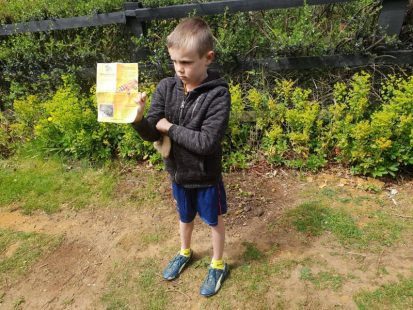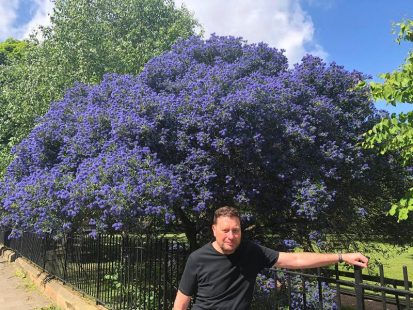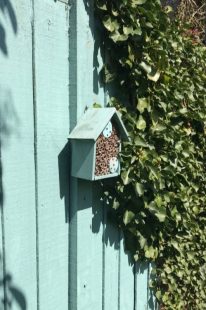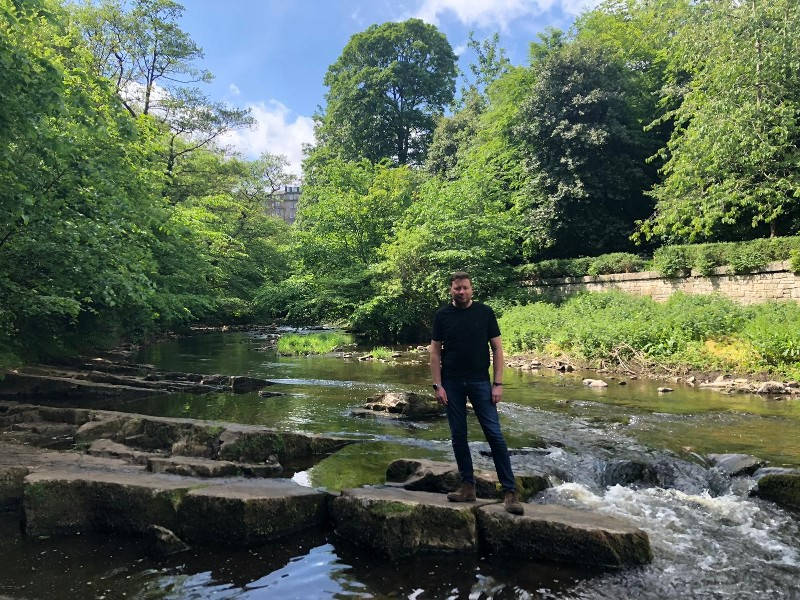Lockdown has brought a whole variety of challenges depending on our individual circumstances from the extremes of being on our own and not seeing anyone for what could be weeks, to being a parent working from home, having often bored and fractious children at home all day; all of which can be substantially challenging.
Keeping happy and healthy both physically and mentally is key to how we bounce back out of this situation, as gradually restrictions are lifted. This is also true of our children – many parents will talk of children having cabin fever – there are well documented connections between spending time outdoors in nature and our feelings of wellbeing.
During lockdown lots of people are seeing wildlife in their gardens, many are noticing more about nature locally whilst working from home, either in their gardens or on daily exercise. To encourage this, our partner the RSPB runs a programme called Wild Challenge – an opportunity for people to connect with the natural world in brave new ways – to reach out and touch it and meet it head-on, up-close and personal.
Three of the leaders from across the UK business took part in the Wild Challenge, and hopefully this will encourage you and your families to participate too! Find out more below…
Steve Redwood, Land Development and Permitting Director for Europe, is on lockdown in rural Cambridgeshire with his family – three boys. Like many others he has been making the most of the weather and helping his children connect with nature on his doorstep for daily lockdown exercise and to fight off cabin fever!
Steve decided to participate in the RSPB’s Wild Challenge with his youngest son, Harry (eight years old), by combining a birdwatching wildlife walk with sowing wildflowers for bees. They walked around the local farmers’ fields looking for birds, insects and basically anything moving!
Steve says: “Our walk took us around the local field boundaries; we saw hedge sparrows, a pair of Red Kites who nest in the local woodland being chased by three or four crows and on adjacent lakes we could see a pair of nesting swans. My son was particularly interested in the badger sett we saw by the woodland and discussed why we did not see any badgers during the day. On our way home we walked past a pond and saw a grass snake (well I think it was?) swimming across the pond.
 At home we sowed some wildflower seeds on a patch of open land in our garden. We used some wildflower seeds bound in clay that you throw on the prepared ground (raked over and watered) – called Beebombs which are great for kids and very easy to sow. We discussed the importance of wildflowers for bees and how important bees are for the countryside, biodiversity and their role in the ecosystems. Adding a nectar corner, full of flowers for bees, butterflies, hoverflies is a really rewarding way to add more colour to the garden and help nature.
At home we sowed some wildflower seeds on a patch of open land in our garden. We used some wildflower seeds bound in clay that you throw on the prepared ground (raked over and watered) – called Beebombs which are great for kids and very easy to sow. We discussed the importance of wildflowers for bees and how important bees are for the countryside, biodiversity and their role in the ecosystems. Adding a nectar corner, full of flowers for bees, butterflies, hoverflies is a really rewarding way to add more colour to the garden and help nature.
We had a really enjoyable day and have done a little to help wildlife. We had some quality time together outside, and quite an exciting and interesting afternoon! Although Harry was as reluctant to pose for the photo!”
 Meanwhile, CEMEX Managing Director UK Materials Lex Russell, is on lockdown in Edinburgh with his older son and Lex decided to take part in the RSPB’s Wild Challenge, by looking for Signs of Spring.
Meanwhile, CEMEX Managing Director UK Materials Lex Russell, is on lockdown in Edinburgh with his older son and Lex decided to take part in the RSPB’s Wild Challenge, by looking for Signs of Spring.
Lex commented: “The changes to all of our lives that the COVID pandemic has brought have been unprecedented. My personal situation found me in lockdown in Edinburgh sharing a flat with no garden with my eldest son. The challenges of work during the crisis were some of the most extreme that I have ever endured. Very quickly it became apparent that during lockdown I needed to look after both my physical and mental wellbeing.
Working with the RSPB I have developed a great passion for engaging with nature in our quarries and sites, so the “first signs of spring” initiative seemed like a good opportunity for me, to let nature help me maintain my overall wellbeing. My highlight is the early morning walks along the Water of Leith listening to the dawn chorus and smelling the aroma of the wildflowers. This gave me the inspiration to deal with all of the challenges I had to face in a working day.”
You can hear Lex talk through his Wild Challenge experience, and learn more about his passion for nature, here.
It can be hard to find green space in the heart of a cities, but parks and communal gardens are a place to start, with rivers sides and canal paths being richer in nature.
Lex:
- Listened to the dawn chorus.
- Listened to a bird in full song.
- Looked for spring – finding the first flowers.
- Found the first trees coming into leaf.
- Watched for invertebrates- butterflies and pollinators.
 Finally, Andy Spencer, VP Corporate Affairs, Sustainability & ERM for the EMEAA Region, took part in a Wild Challenge is his back garden – going on a bug safari!
Finally, Andy Spencer, VP Corporate Affairs, Sustainability & ERM for the EMEAA Region, took part in a Wild Challenge is his back garden – going on a bug safari!
Andy is spending lockdown at home with his family in Leicestershire and taking time out in his garden has given him the opportunity to check in on the two bee and bug hotels he installed a few years ago.
Andy says: “The bee and bug hotels have been a very easy way to encourage more wildlife into our garden – it was literally just a case of hanging them up on the fence! I installed a couple of them about three years ago, both on a south facing fence at the bottom of the garden, near to a tree and some Laurel bushes.
We had to be patient at first but in the second year we started to notice the holes being filled and then in springtime a frenzy of activity during the day. They are now used a lot by solitary bees. One of the bee hotels has different spaces for insects and we have seen lacewings and other insects around it.
I definitely think we have seen more bees in the garden as a result. Although it is a small garden, we have a few miniature fruit trees and we seem to be getting better pollination and more fruit over the past couple of years. We have also noticed last year and this year several ground nesting bee nests – and the bees are not aggressive at all so no fear for the kids!”
Watch a video of Andy’s bee hotel in action here.
As you can see from these three examples, wherever we are spending lockdown there are still plenty of opportunities to get out and experience nature. If you’d like to take part in your own Wild Challenge, click through the link below – and keep us updated on any activities you do!
https://www.rspb.org.uk/fun-and-learning/for-families/family-wild-challenge/
